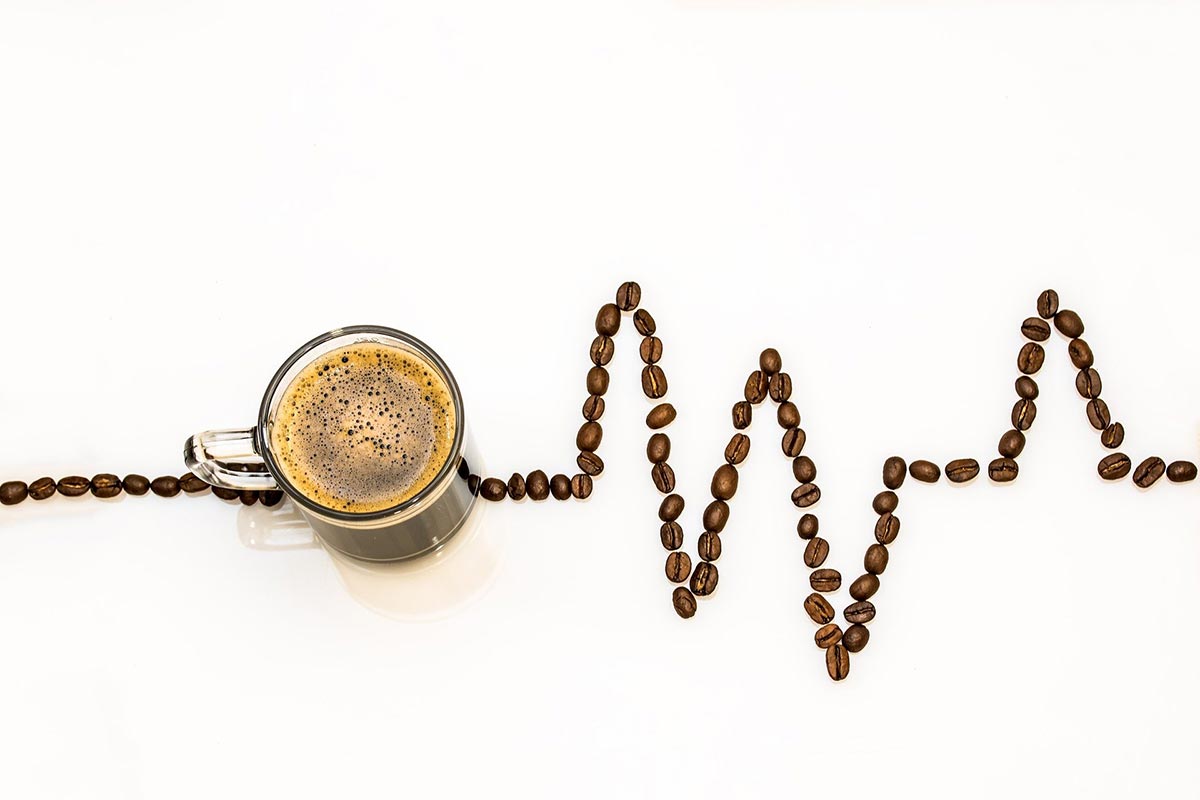Caffeine is one of the most widely consumed psychoactive substances in the world. It occurs naturally in coffee, tea, cacao, and even some seeds and leaves used in herbal infusions. The global caffeine market continues to grow, with coffee consumption exceeding 10 million metric tons annually. In the United States alone, over 400 million cups of coffee are consumed every day. This makes caffeine not just a cultural staple but also a scientifically relevant compound that significantly influences human physiology.
The Caffeine Buzz - Pace Yourself
Many people swear by their morning cup of coffee, but what exactly happens in the brain? Caffeine primarily functions as an adenosine receptor antagonist, meaning it blocks the chemical adenosine, which typically promotes relaxation and sleepiness. The result is increased alertness and improved cognitive performance. Recent studies have also suggested that caffeine may enhance mood by increasing the availability of dopamine, a neurotransmitter linked to pleasure and motivation.
Moderation is key when it comes to caffeine consumption. While a moderate intake—around 200 to 400 mg per day—has been associated with cognitive benefits, excessive caffeine can lead to undesirable effects such as jitters, anxiety, and heart palpitations. In fact, the American Psychiatric Association recognizes caffeine-induced anxiety disorder as a condition. Furthermore, caffeine tolerance can develop quickly, meaning that regular consumers may need increasing amounts to achieve the same stimulating effect.
Caffeine and Performance Enhancement
For athletes, caffeine has long been considered a performance booster. Research from the past decade has demonstrated that caffeine can enhance endurance performance, reaction time, and even strength in some individuals. Due to these effects, organizations like the World Anti-Doping Agency (WADA) continue to monitor caffeine levels in athletes. However, the benefits are not universal, as some people metabolize caffeine more slowly due to genetic variations.
The Myth of Caffeine Causes Dehydration
Although caffeine has a mild diuretic effect, it does not significantly contribute to dehydration. Studies indicate that habitual caffeine drinkers develop a tolerance to this effect, meaning their bodies retain fluids similarly to those who consume non-caffeinated beverages. In fact, a cup of coffee or tea contributes to daily hydration just as effectively as water. Despite common belief, drinking coffee after consuming alcohol does not speed up sobriety. While caffeine can increase alertness, it does not metabolize alcohol any faster. This means that a person who drinks coffee while intoxicated may feel more awake but remains impaired in terms of judgment, coordination, and reaction time.
The Dopamine Connection - Health Benefits of Caffeine
Caffeine's ability to block adenosine also leads to an increase in dopamine signaling, similar to drugs like cocaine and heroin, though to a much lesser extent. This mechanism explains why caffeine can be mildly addictive. However, caffeine dependence is not classified as a substance use disorder, and withdrawal symptoms—such as headaches, fatigue, and irritability—are usually mild and temporary.
While excessive caffeine intake has some risks, moderate consumption has been linked to various health benefits. Recent studies have suggested that caffeine may help protect against neurodegenerative diseases like Parkinson’s and Alzheimer’s. Additionally, research indicates that coffee drinkers may have a lower risk of liver disease, Type 2 diabetes, and even certain types of cancer. These effects are thought to be due not just to caffeine itself but also to the antioxidants and polyphenols found in coffee and tea.
Not All Benefits—Caffeine's Risks
Despite its potential upsides, caffeine is not suitable for everyone. Individuals with heart conditions, anxiety disorders, or acid reflux may find that caffeine worsens their symptoms. Additionally, excessive caffeine intake during pregnancy has been associated with a higher risk of complications, leading health authorities to recommend limiting caffeine consumption to under 200 mg per day for pregnant individuals.
Breaking Free from Caffeine Dependence
If you find yourself relying on caffeine to function, it may be time to reassess your habits. Gradual reduction is often the best approach to minimizing withdrawal symptoms. Swapping high-caffeine beverages for lower-caffeine alternatives, such as herbal tea or decaf coffee, can ease the transition. Additionally, improving sleep hygiene and staying hydrated can help maintain energy levels without relying on stimulants.
Caffeine remains one of the most researched and widely used psychoactive substances worldwide. When consumed responsibly, it can offer cognitive and physical benefits. However, overconsumption may lead to negative effects, making balance essential. With ongoing scientific advancements, our understanding of caffeine’s impact on the human body continues to evolve, providing new insights into its role in health and performance.
Sources:
1. American Psychiatric Association: Caffeine and Anxiety Disorders.
2. World Anti-Doping Agency: Caffeine and Athletic Performance.
3. National Institute on Aging: Coffee, Caffeine, and Neurodegenerative Diseases.
4. Harvard School of Public Health: Caffeine and Heart Health.
5. Mayo Clinic: Effects of Caffeine on Hydration and Metabolism.
6. European Food Safety Authority: Safe Limits of Caffeine Consumption.












